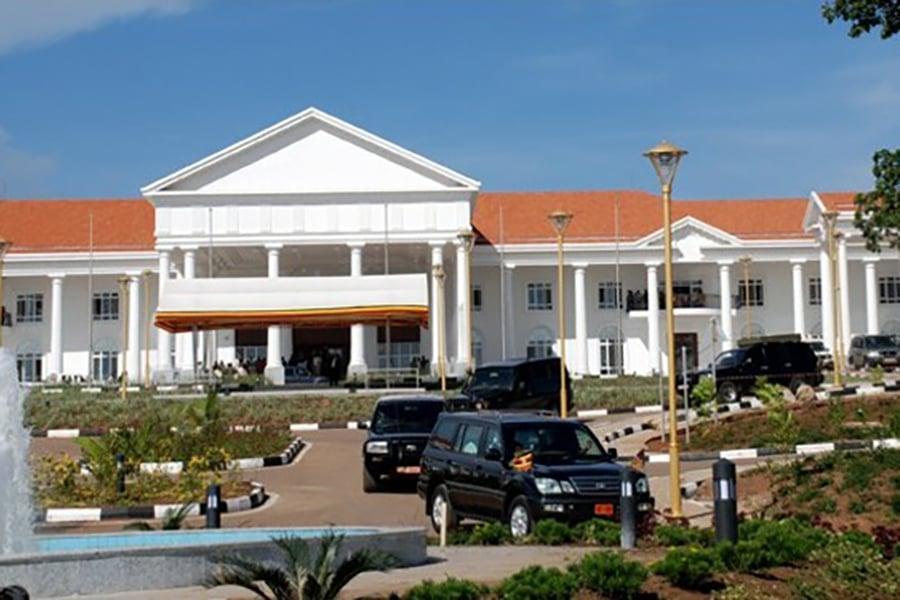Africa-Press – Uganda. Justice and Constitutional Affairs Minister Norbert Mao has sparked debate after likening Uganda’s State House in Entebbe to a shopping mall, lamenting what he sees as the loss of national architectural heritage.
Speaking at an event to commemorate World Intellectual Property Day in Kampala, Mao — also the President General of the Democratic Party — criticized the demolition of the original colonial-era State House, which was replaced by a more modern structure with support from Chinese contractors.
“I felt bad when the Chinese destroyed the old State House building to build this one. The old State House had a history,” Mao said, his remarks laced with nostalgia and visible disappointment.
He went on to compare the current design to popular commercial buildings in Kampala: “It looks like Akamwesi, it looks like Forest Mall. It’s some common place. It’s like a shopping mall.”
State House Entebbe is not only the official residence of President Yoweri Museveni but also the symbolic seat of executive power in Uganda.
State House Entebbe, originally constructed during the colonial era, served as the official residence for British colonial governors and later Uganda’s post-independence presidents.
The original structure, overlooking Lake Victoria, was a symbol of authority and historical continuity, embodying colonial-era architecture with stately proportions and heritage value.
It witnessed key moments in Uganda’s political evolution, from the early years of independence under Milton Obote to the tumultuous regimes that followed.
In the early 2000s, the government opted to modernize the facility. The old building was demolished and replaced by a new, larger structure with funding and technical support from China.
The current State House, while more spacious and outfitted with modern amenities suitable for hosting diplomatic events and Cabinet meetings, has drawn criticism from some quarters — including cultural conservationists and politicians like Mao — who argue that the redesign erased an important piece of Uganda’s architectural history.
The new building, constructed as part of efforts to modernize key national infrastructure, has been in use for years and regularly hosts Cabinet meetings.
Mao’s remarks have reignited concerns among heritage conservationists and members of the public over the preservation of historical sites and the role of foreign contractors in shaping Uganda’s physical and cultural identity.
Whether this critique sparks a broader national dialogue on architectural heritage and identity, or becomes just another fleeting political soundbite, remains to be seen.
For More News And Analysis About Uganda Follow Africa-Press






